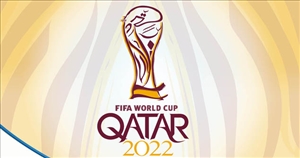By Andrew Warshaw
February 23 – Twenty-four hours before what is likely to be a formal recommendation to play the 2022 Qatar World Cup in November-December, representatives of Europe’s major leagues have urged supporters of the first ever winter tournament to think again.
As members of the FIFA-appointed 2022 Task Force started to arrive in Doha for tomorrow’s (Tuesday) concluding session to settle an issue that has taken over four years to resolve, the European Professional Football Leagues (EPFL) says its voice, which covers all the major leagues across the Continent, must not be ignored.
According to the joint chairman of the Task Force, Asian football supremo Sheikh Salman Ebrahim bin Khalifa, winter is now a done deal with no further room for compromise, with November-December in pole position after an alternative of December-January was ruled out because of a potential clash with the annual winter sports timetable including the winter Olympics.
But the talks, taking place at the Qatar National Convention Centre, represent the last time those Task Force stakeholders who oppose winter can have their say.
The clubs and leagues are putting forward a detailed joint alternative of a May World Cup to finish in early June. Barring a major change of heart, however, the final session of the Task Force will propose November-December, a date favoured by FIFA president Sepp Blatter and likely to be officially endorsed by FIFA next month, bringing to an end years of prevarication.
UEFA president Michel Platini, who voted for Qatar, also favours winter even though that puts him in direct opposition with the clubs and will mean a radical change to the scheduling of his own Champions League and Europa League competitions.
Qatar, which won a landslide victory in December 2010, says it would be prepared to stage the World Cup at any time of year and has been testing revolutionary cooling techniques. Those in favour of a winter World Cup argue that the tournament should be played in the best climatic conditions when it goes to fresh territories and that there is plenty of time to make the necessary calendar adjustments.
But opponents are unhappy that an unprecedented break with tradition is being imposed on them, making the point that the vast majority of players lining up at the World Cup play their club football in Europe.
“It’s a matter of principle,” said an EPFL spokesman. “This is not only about Qatar, it’s about the relationship between stakeholders and is very sensitive politically. Our studies show that any winter option will cause huge damage. November-December is the peak of European and domestic competition. We have to have an option that limits the damage. May is the most feasible option..”
Harold-Mayne Nicholls, who headed the FIFA technical inspection team that assessed conditions in every one of the bidding countries for 2018 and 2022, has already warned that around 50 leagues all over the world will have to be moved to accommodate a November-December World Cup. That, he says, will be bad news for fans as well as players and broadcasters.
“Stopping the leagues in October, which you’d have to do for preparation, and starting again in January after Christmas and New Year, would totally lose any atmosphere,” said Mayne-Nicholls.
The Task Force session is not the only focus of interest in a big week public relations-wise for the Qatar organisers who have scheduled their first 2022 board meeting for Wednesday followed by a news conference attended by World Cup organising chief Hassan al-Thawadi and FIFA secretary general Jerome Valcke.
Contact the writer of this story at moc.l1751413436labto1751413436ofdlr1751413436owedi1751413436sni@w1751413436ahsra1751413436w.wer1751413436dna1751413436

